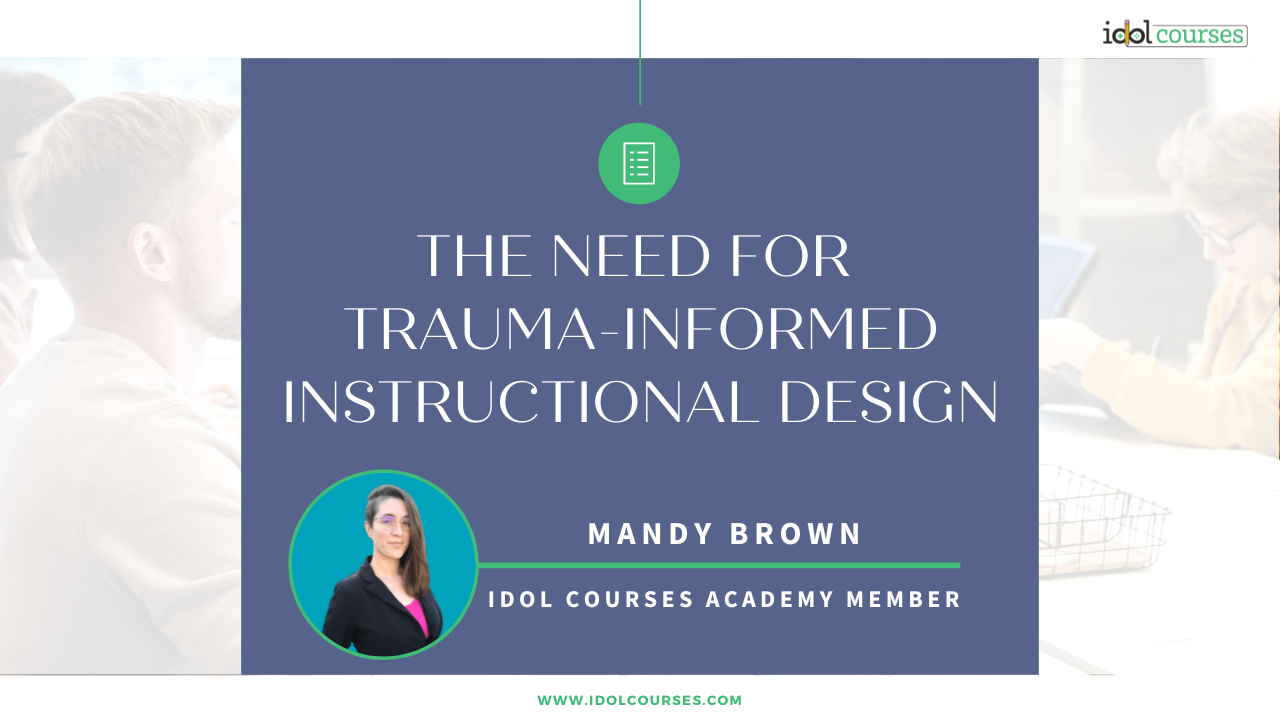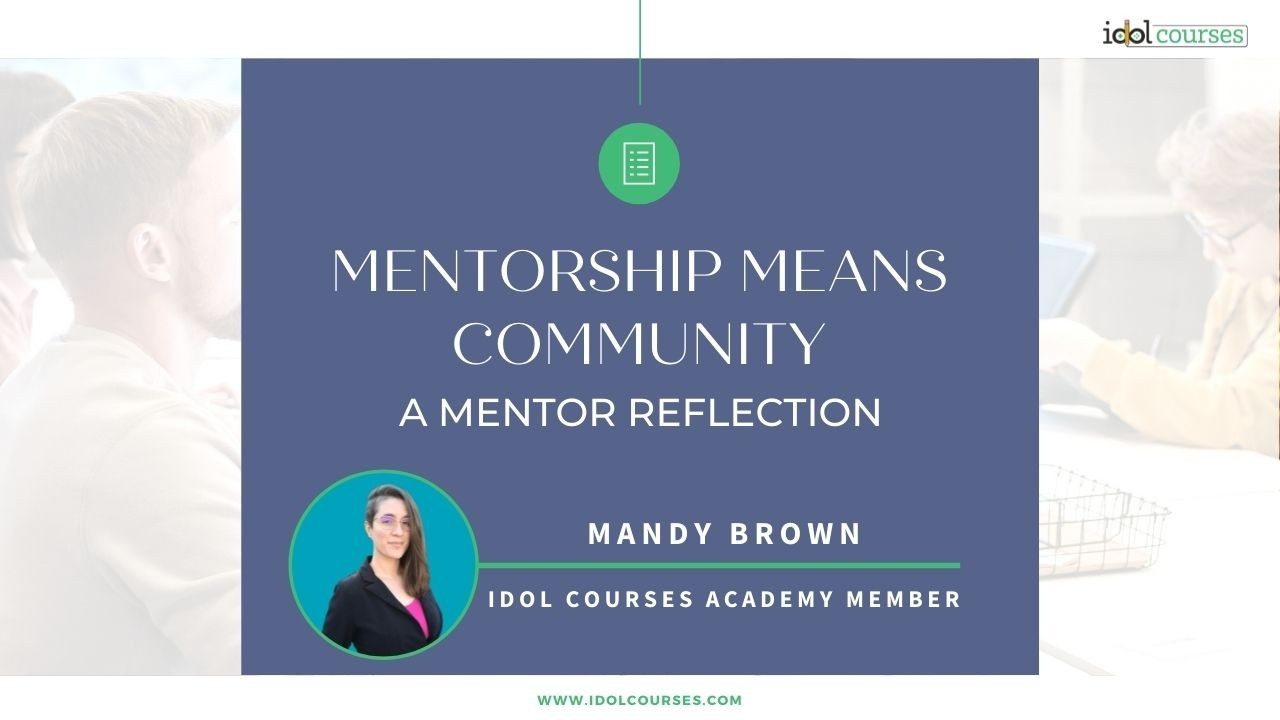
Elevate your instructional design expertise.
Stay ahead with industry news and discover valuable tips and tricks on the IDOL Blog.
The Need for Trauma-informed Instructional Design
Nov 18, 2022
Mentorship Means Community
Oct 21, 2022
Interested in joining the IDOL community?
Join our newsletter below, where we keep you updated on our upcoming cohorts, events and news within the instructional design industry.




